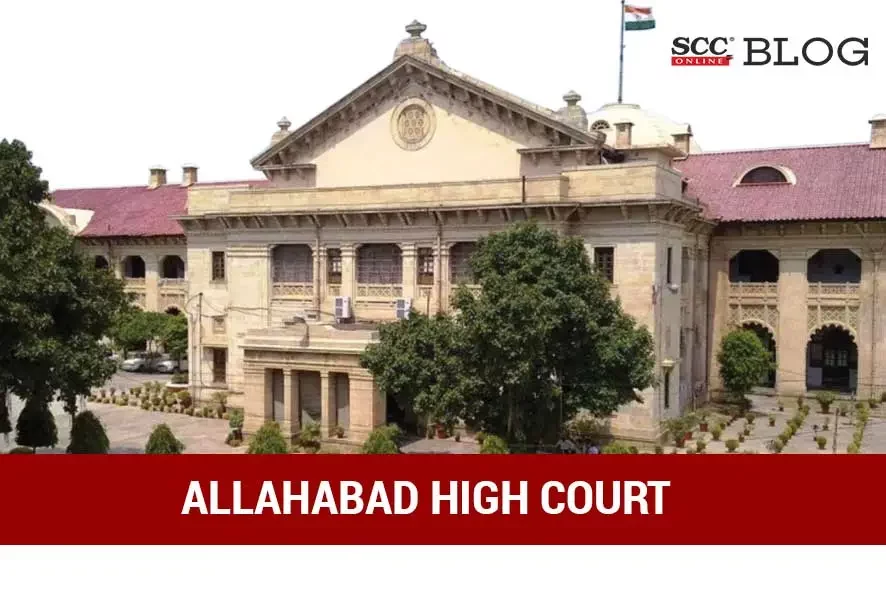Allahabad High Court: In a writ petition filed challenging the award passed by Industrial Tribunal-cum-Labour Court between the petitioner and the State Bank of India. Further orders passed by the Assistant General Manager and Deputy General Manager were under challenge, Kshitij Shailendra, J. while partly allowingthe writ petition, quashed the impugned orders. Further, after considering the simultaneous effect of all the proceedings as well as age of the petitioner at the time of passing of the award, the Court said that:
-
The petitioner shall be entitled to entire arrears of salary and consequential benefits with effect from the date of termination of his services till the date of his superannuation but without any interest.
-
The petitioner shall also be paid his post retiral benefits along with 6% simple interest from the date of his retirement till date of actual payment computed accordingly within a period of three months from the date a certified copy of this order is produced before the respondent-bank.
According to the said orders, the petitioner was dismissed from service and his departmental appeal was dismissed. Further prayer has been made to issue a direction for reinstatement of the petitioner in service with all consequential benefits including arrears of salary from the date of order of suspension.
The Court said that when the punishment order was passed in the year 2004, the criminal trial against the petitioner was pending. However, when the matter was decided by the Tribunal in the year 2016 under the impugned order, the petitioner had already been acquitted under the judgment dated 15-10-2009.
The Court after perusing the Tribunal’s order found that the concluding paragraphs of the same discuss only one aspect of the matter that is the date of termination order has been shown as 22-09-2004 in the order of reference, whereas the petitioner was dismissed from services by order dated 26-10-2004 which has not been challenged by the petitioner and, therefore, the reference appears to be contrary to the factual position. Thus, it was held by the Tribunal that the petitioner is not entitled to any relief.
The Court remarked that the aforesaid observations are quite surprising in nature, considering the fact that there might be some discrepancy regarding the date of termination order. The Tribunal should not have indulged into finding discrepancy in the date of termination order and making it a ground for denying relief to the petitioner. Therefore, the observations made in the Tribunal’s order are contrary to the real controversy involved in the matter, thus, it is unsustainable.
The Court said that there were no discussions in the Tribunal order regarding the effect of provisions of Clauses 19.3 and 19.4 Memorandum of Settlement (Memorandum) or even identical terms contained in the subsequent Memorandum dated 10-04-2002. The Tribunal has not at all discussed as to when the criminal trial commenced and what would be its effect on the departmental proceedings.
Further, the Court noted that the writ petition was filed in 2001 and was disposed of instantly and at that time even the charge sheet concerning the departmental proceedings was not served upon the petitioner and a general direction might have been issued for conducting inquiry. It opined that even if the High Court permitted holding of inquiry at the stage when the petitioner was under suspension, would not nullify the effect of specific terms and Clauses of the Memorandum and/or because the validity of the inquiry proceedings has to be examined in the light of specific stipulations contained in the said Settlements.
The Court said that the Tribunal has not considered the effect of acquittal of the petitioner from the identical criminal charges. The judgment is completely silent about the same. This is an apparent perversity on the part of the Tribunal.
In the present case, the charges in both the proceedings were identical and, in fact, charges in the criminal trial were graver and more specific in relation to same transactions, therefore, acquittal of the petitioner was certainly a decisive factor in the departmental proceedings. The effect of the Bipartite Settlement of 1966 and/or Memorandum of Settlement dated 10-04-2002 cannot be ignored.
The Court said that once service rules (Memorandum of Settlement) specifically take care of commencement, pendency, culmination and the conclusion of the departmental proceedings vis-a-vis criminal prosecution, the general principle that criminal trial and departmental proceedings can run simultaneously cannot be strictly applied, at least against the petitioner, otherwise it would be a case where the general conceptions would override specific service rules which is not permissible.
The Court further said that the departmental authorities should not have commenced the departmental proceedings against the petitioner as the charge sheet in the criminal case had been submitted within a period of one year and even if the departmental proceedings could commence, they were bound to be stayed awaiting decision of the criminal trial. As the same has not been done and the effect of judgment of acquittal as well as the clause 19.3 and 19.4 of the Memorandum 1966 and identical clauses of settlement were not considered, the Court quashed the impugned order.
Since the petitioner, even on the date of filing of petition had attained the age of superannuation, the Court said that the relief of his reinstatement in service cannot be granted.
[Basistha Muni Mishra v Union of India, 2023 SCC OnLine All 182, Order dated 15-05-2023]
Advocates who appeared in this case :
Counsel for Petitioner: Advocate Siddharth Khare, Advocate Ashok Khare;
Counsel for Respondent: Advocate S.K.Kakkar, Advocate S.K.Shukla, Advocate Satish Chaturvedi, Advocate Satish Kishore Kakkar, Advocate Sumit Kakkar.







